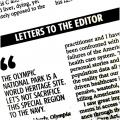
Coping with the restrictions imposed by the Covid-19 crisis and with the world in turmoil, I would understand if your readers might not be particularly interested in battles that have been fought and thought to be over. However during last week, there has been an extraordinary development with regard to the Brexit debate and which may give them cause for some reflection.
Sir Iain Duncan Smith, one of the principal architects of Brexit, has admitted on Twitter that he had not understood the “fine print” contained in the Withdrawal Agreement (WA). He now sees that the UK will be disadvantaged by being bound into the guarantees the UK has given on loans made by the EU to other member states and that the country could be potentially liable for considerably more than the headline £39 billion “divorce settlement”.
As the Liberal Democrat Parliamentary Candidate for Chingford and Woodford Green at the last election, I made the positive case for remaining in the EU. However whenever at hustings, I drew attention to the true costs of leaving, Sir Iain, invariably blustered with a barrage of well-known meaningless mantras – get Brexit done, get over it, no deal better than a bad deal, oven ready deals waiting, control over our taxes etc. Now he is not quite so sure that we should get it done - or at least not in the haste that he demanded when voting to guillotine the debate on the WA.
Of course, guaranteeing loans is not the half of it. My day job is as risk assessor to funders of property and infrastructure construction projects and, amongst other things, I have to consider the impact of a no-deal Brexit at the end of the transition period. Delays to deliveries of directly imported materials and equipment, delays to components imported for manufacture in products used in the UK supply chain, WTO tariffs, non-compliances with standards and shortages of skilled and unskilled labour will result in long term damage and substantial cost to that sector alone .
Perhaps Sir Iain would care to speak to his friends in Government with a view to persuading them to draw back from the precipice.
Dr Geoffrey M Seeff
By email



Comments: Our rules
We want our comments to be a lively and valuable part of our community - a place where readers can debate and engage with the most important local issues. The ability to comment on our stories is a privilege, not a right, however, and that privilege may be withdrawn if it is abused or misused.
Please report any comments that break our rules.
Read the rules hereLast Updated:
Report this comment Cancel